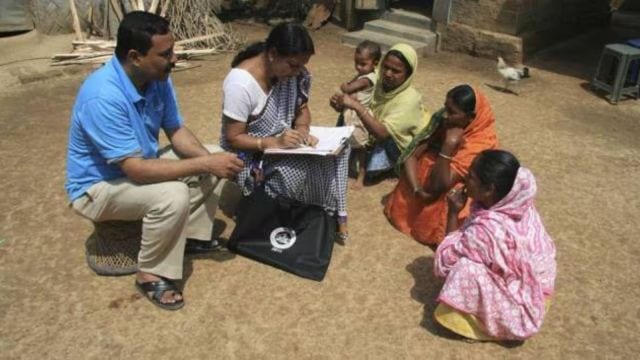
The Government on Wednesday said the process of data collection for the Census, along with caste enumeration, would commence early next year and give the snapshot of the country’s population as on March 1, 2027. The last Census provided population data as on March 1, 2011. The next Census was due in 2020-2021, but was delayed due to Covid pandemic.
The exercise this year will officially begin with a notification announcing the government’s intent of conducting the Population Census to be published in an official gazette tentatively on June 16 this year.
The reference date for hilly areas, including the Union Territory of Ladakh, and snow-bound areas of Jammu and Kashmir, Himachal Pradesh and Uttarakhand, is October 1, 2026. For the rest of India, it is March 1, 2027. The reference date is the specific point of time for which the data on population is collected.
Top government officials said there are two important issues to take note of in this Census. One, this Census must not be immediately linked with the delimitation exercise because the government does not expect to wrap up the entire process – including final publication of Census data — in time for the 2029 Lok Sabha elections. The 2011 Census data was released only in April 2013.
Two, the caste enumeration, which will commence alongside the Census exercise, is unlikely to have an umbrella OBC category. It is likely to be just a plain listing of all castes. The traditional census includes categorisation of Scheduled Castes and Scheduled Tribes along with the religious denominations of the citizens. While there are numerous caste groups in the country, the caste census may not be directly useful for any affirmative action.
The timeline of the Census is significant as it opens up the possibility of the delimitation exercise – the process of readjusting the seats of Lok Sabha and state Assemblies and redrawing their territorial boundaries — immediately thereafter.
Article 82 of the Constitution mandates a readjustment of seats after every Census. But this provision was suspended for 25 years, first in 1976 and then again in 2001 through Constitutional amendments. According to the current provisions, the delimitation has to happen on the basis of the first Census taken after 2026.
The government had in April announced that the caste enumeration should be included in the forthcoming Census. It came at a time when the opposition, particularly Congress leader Rahul Gandhi made a strong push for population-based representation for different castes. His slogan jitni abadi utna haq is believed to have had an impact in the 2024 Lok Sabha elections.
The Opposition claims that the BJP probably wanted to avoid the pressure from the backward castes to review the reservation policies even in the next general elections. However, sources in BJP said the listing of the castes and their population is unlikely to trigger major affirmative action, including a review on the upper limit of 50 per cent for caste based reservation. Leader of Opposition Rahul Gandhi has announced that his party is committed to ensuring that the cap would be lifted.
In September 2023, Parliament amended The Constitution (One Hundred and Twenty-eighth Amendment) to provide 33 per cent reservation to women in Lok Sabha and state Legislative Assemblies. A crucial provision in the law makes the implementation of women’s reservation contingent upon the delimitation process. The Act states that the quota “shall come into effect after an exercise of delimitation is undertaken for this purpose after the relevant figures for the first census taken after the commencement of The Constitution (One Hundred and Twenty-eighth Amendment) Bill 2023 have been published, and shall cease to have effect on the expiration of a period of 15 years from the date of such commencement.”
The last Census was conducted in 2011 in two phases. Census 2021 was also proposed to be conducted in two phases with phase I during April-September 2020 and the second phase in February 2021.
All preparations for the first phase of the Census to be conducted in 2021 were completed and the fieldwork was scheduled to begin in some States/UTs from April 1, 2020. However, due to the outbreak of the Covid pandemic across the country, the census work was postponed.